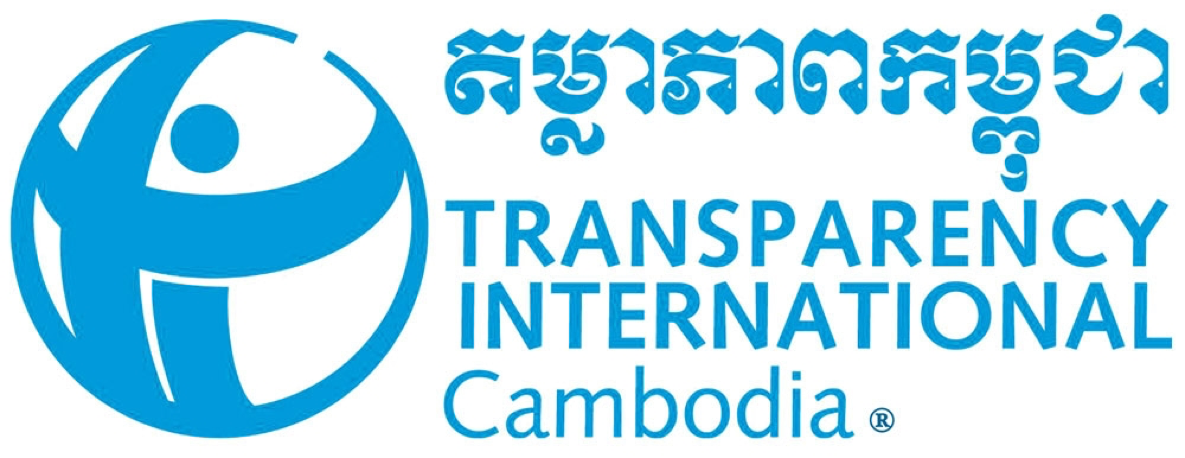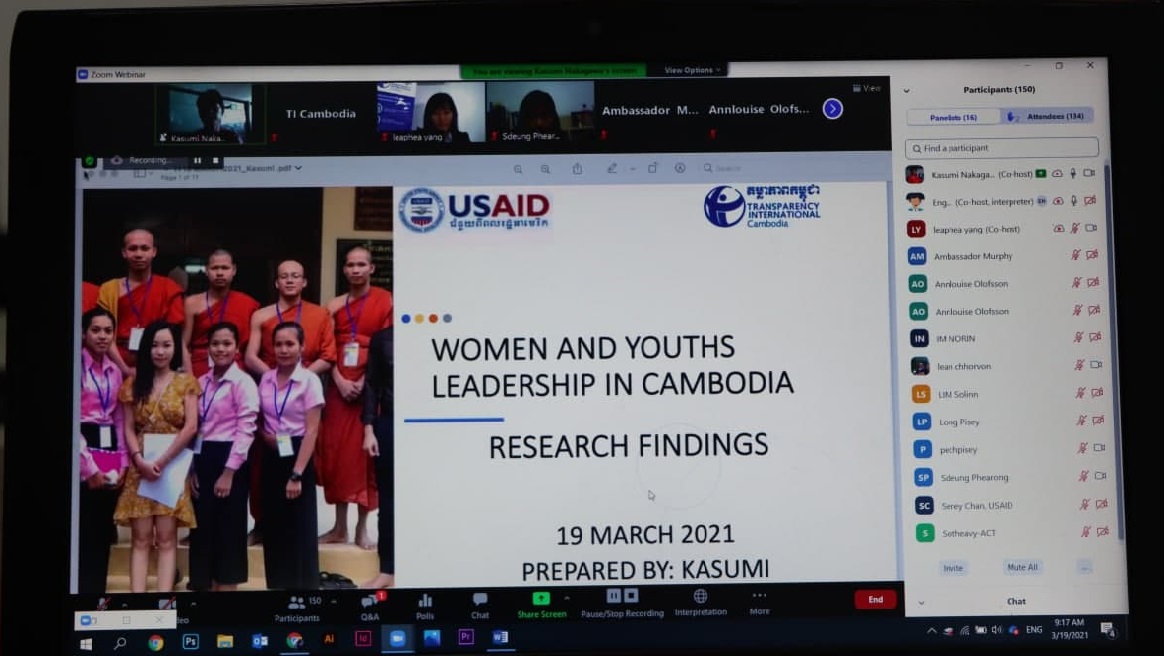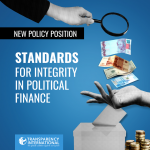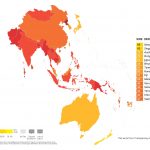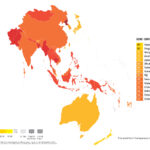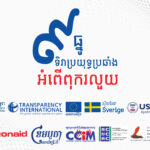The research study on “Leadership of Women and Youth in Cambodia: Current Status and Challenges”
PRESS RELEASE
The Launch of an In-depth Study Report on
“Leadership of Women and Youth in Cambodia: Current Status and Challenges”
Phnom Penh, 19 March 2021 – Transparency International Cambodia (TI Cambodia) today launched a study on “Leadership of Women and Youth in Cambodia: Current Status and Challenges”. Using a mixed-method approach, the study explores the current situation of women and youth in leadership roles and identifies progresses and challenges in creating an enabling environment for these important demographic groups to effectively participate in the country’s decision-making processes. A total of 569 individuals participated in the study, through either focus group discussions or in-depth interviews. They include government officials (national and sub-national), civil society organisations, higher education institutions, group of LGBTIQ, students, general citizens and youth.
Results from the study clearly demonstrate that although certain progresses have been made over the years regarding women and youth’s engagement in decision-making positions and they are also considered and believed to be a key driving force for economic, cultural, and social development, they remain significantly under-represented in the public sphere, particularly in leadership positions at both the local and national levels.
The study’s finding, in addition, indicates that several factors—cultural, social and economic—have contributed to this situation. Findings, for example, show that a shortage of women in leadership positions is linked to stereotypes and prejudices towards women’s capacities and the expected roles for women, and these were the strongest barriers to women becoming leaders. Meanwhile, age-discrimination, institutional barriers, and financial constraints were found to be common barriers preventing youth from becoming leaders.
The study, furthermore, indicates that stereotype and prejudices towards women’s capacities remain widespread among some segments of the population. Findings from the analysis conducted as part of this study, for instance, reveals that more females (93%) than males (38%) agreed that women could be good leaders. The survey also shows that the majority of respondents believed that women are holding themselves back from becoming leaders. What is more, an analysis of the focus group discussions and key informant interviews identified seven main barriers hindering women from ascending to leadership roles: family burdens, lack of encouragement/support, male dominance of the public sector, limited education/capacities/confidence of women, discrimination by men and other women, stereotypes that oppress women’s freedom, and health (perceived weakness and pregnancy).
As far as leadership of youth is concerned, the majority of the study participants believed that it is important to engage youth in the decision-making process. As with women, seven key interlinked barriers were found to have limited the opportunities for youth to take up leadership roles: such as parental discouragement, age discrimination, limited space for youth to be leaders, migration for employment, limited space for freedom of expression, nepotism and lack of soft skills.
“As long as certain stereotypes and prejudices toward women and youth still exist, they may still find it challenging to play prominent roles in the society” said Ms Srey Sotheavy, member of TI Cambodia’s Board of Directors. “Women and youth should be provided sufficient opportunities and enabling environment so that they can thrive and express themselves, realise their potentials and play active roles in decision making positions.”
Findings from the study clearly show that despite their significant sizes and potentials, women and youth are still lagging behind when it comes to leadership roles, particularly in public affairs. TI Cambodia, as such, calls upon every stakeholder to make greater efforts to promote and empower youth especially women to take part in leadership roles. More importantly, there is a clear need of collective effort in creating an enabling environment for youth and women to effectively participate in decision-making process without fear, judgement, discrimination and intimidation. Sufficient supports shall also be committed to creating an enabling environment for them to play key roles social, economic and political spheres.
###
To download the full and summary research reports, please visit: www.ticambodia.org/library
Media contact:
- Mr Pech Pisey, Executive Director of Transparency International Cambodia,
(855) 89 972 620, piseypech@ticambodia.org
Download Press Release WYEL Report
 English
English